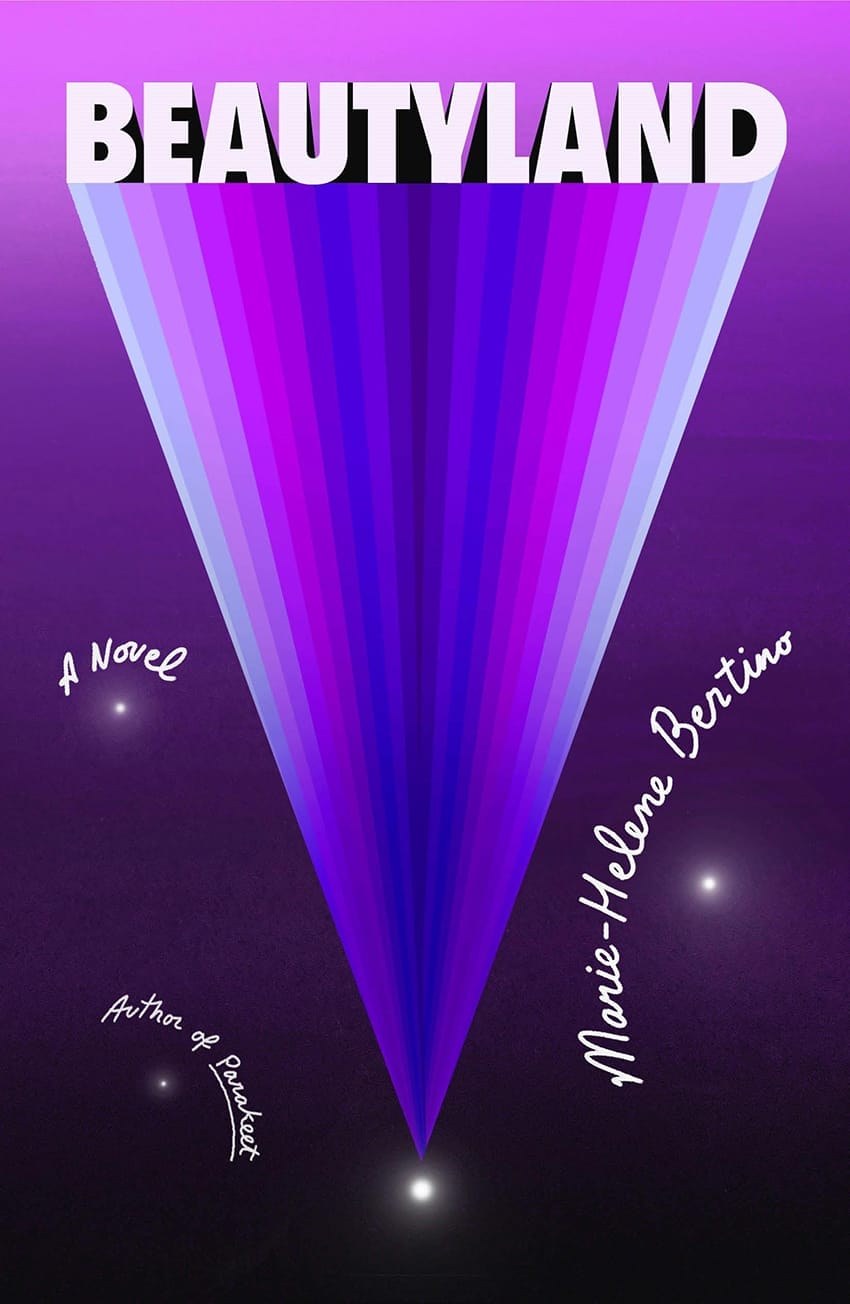

Beautyland
From the acclaimed author of Parakeet, Marie-Helene Bertino’s Beautyland is a wise, tender novel about a woman who doesn’t feel at home on Earth.
At the moment when Voyager 1 is launched into space carrying its famous golden record, a baby of unusual perception is born to a single mother in Philadelphia. Adina Giorno is tiny and jaundiced, but she reaches for warmth and light. As a child, she recognizes that she is different: She possesses knowledge of a faraway planet. The arrival of a fax machine enables her to contact her extraterrestrial relatives, beings who have sent her to report on the oddities of Earthlings.
For years, as she moves through the world and makes a life for herself among humans, she dispatches transmissions on the terrors and surprising joys of their existence. Then, at a precarious moment, a beloved friend urges Adina to share her messages with the world. Is there a chance she is not alone?
Marie-Helene Bertino’s Beautyland is a novel of startling originality about the fragility and resilience of life on our Earth and in our universe. It is a remarkable evocation of the feeling of being in exile at home, and it introduces a gentle, unforgettable alien for our times.
My thoughts:
I’ll be honest – when I first read the synopsis of this book, I wasn’t remotely interested. It sounded too literary and too cerebral for my taste. I assumed it would be one of those books that critics rave about, but that leaves me feeling disconnected. So, I passed on it. But then I started seeing glowing reviews from trusted readers on Instagram, and my perspective shifted. When I saw a discounted copy at Barnes & Noble, I took a chance and bought it. I am so glad I did.
This is a novel that isn’t easily categorized. It is speculative fiction, but it is also deeply literary. It is tender yet unflinching. It is humorous and heartbreaking, strange and familiar, intimate and vast. But more than anything, it is an exploration of what it means to be different – to exist on the fringes, to question one’s origins, to feel like an outsider in the only world you’ve ever known. This is something that I think most of us – especially anyone who isn’t straight and white – can understand.
At the heart of the novel is Adina Giorno, a woman who has always believed she is an alien. Born at the exact moment Voyager 1 is launched into space, Adina firmly believes that she is not of this world. She is convinced she has been sent here as an observer, a theory that gains traction when she establishes and maintains contact with her extraterrestrial family through a fax machine for years. This premise might sound absurd on the surface, but in Bertino’s hands, it feels entirely real, mostly because this book isn’t about science fiction in the traditional sense. Instead, it’s about identity, belonging, and the way we navigate a world that often feels alien to us.
Adina is a profoundly relatable character, especially for anyone who has ever felt different or out of place. She reminds me of the quiet, imaginative kids who sat in the back of the classroom, and no one paid much attention to them. She represents the dreamers, the outsiders, the people who sense that they are meant for something beyond the limitations of their circumstances. And yet, for all her otherworldliness, Adina is achingly human. Her observations about Earth – both hilarious and deeply poignant – highlight the contradictions and absurdities of human existence in a way that makes us see our own world with fresh eyes.
The novel unfolds in a series of transmissions, reflections, and experiences, blurring the lines between reality and perception. The sections are often short and to the point but never without purpose. The author’s prose is deceptively simple but filled with sharp insights and quiet, devastating truths.
And then there’s the ending. Without giving anything away, I’ll say this: read the book with patience and with an open mind. There’s a moment of revelation toward the end of the book that made me rethink everything that had come before it. It’s a subtle but powerful realization, one that the author never explicitly confirms or denies. Instead, she leaves room for interpretation, allowing each reader to bring their own meaning to Adina’s story and what has really happened over the years. This openness makes the novel deeply personal, and I will say that when the realization hit me, I had to set the book aside and compose myself. I got very choked up.
It’s been a long time since I’ve read a book that made me feel this way – it was very much an experience I won’t soon forget. It is a novel about alienation and connection, about the search for meaning in a chaotic world, and about the ways we define ourselves in relation to others. It’s one I would love to experience again for the first time.
I went into this book skeptical about whether I’d actually enjoy it, or get anything out of it, and then came out feeling seen and understood. I expected a cold, intellectual novel, and instead, I found warmth, humor, and heart. It is, without question, a five-star read for me. This is one that will stay with me for a long time. If you’ve ever felt like you don’t quite belong, if you’ve ever questioned your place in the universe, and if you love books that leave room for discovery, this one is not to be missed.













